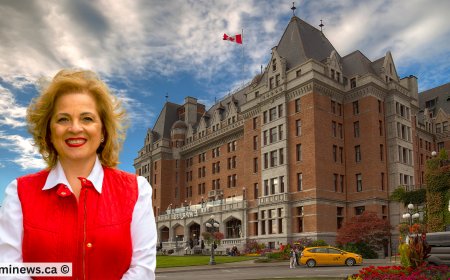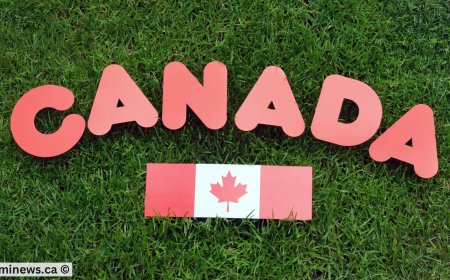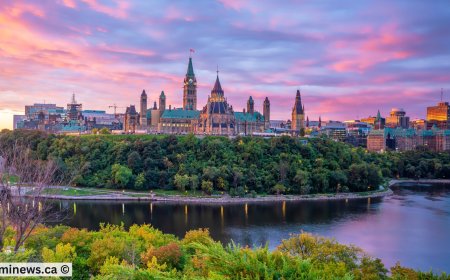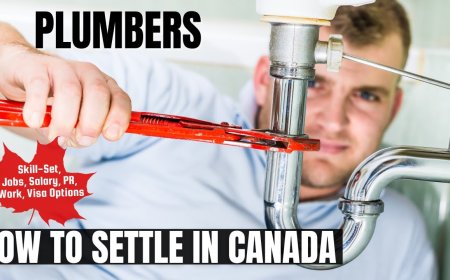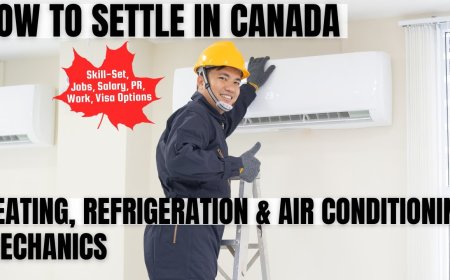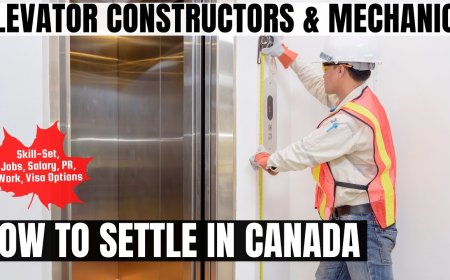Welders and related machine operators Guide to Canada Immigration: Exploring Salaries, Job Duties, and Where to Live
Welcome to the pathway to Canada immigration for skilled professionals and trade workers. This guide is specifically tailored for Welders and related machine operators looking to work and settle in Canada, offering a deep dive into the essential aspects of immigration and employment in this field.
Introduction
In Canada, the field of welding and related machine operation offers promising career prospects for individuals looking to immigrate and establish themselves in a new country. In this article, we will delve into the profile of Welders and related machine operators, classified under NOC 7237, covering aspects such as job duties, education and licence requirements, essential skills, median salary details, and possible visa options for prospective immigrants. By providing a comprehensive overview of the opportunities available in this field, we aim to guide individuals towards a successful career path in Canada.
What is the Profile Description of a Welders and related machine operators as per the Canadian National Occupation Classification (NOC) Standards?
Welders and related machine operators are skilled professionals who specialize in operating welding equipment to join together various types of metals. They work with both ferrous and non-ferrous materials to create strong and durable welds. Additionally, they may operate production welding, brazing, and soldering equipment that has been set up by others. These professionals are typically employed by companies that manufacture structural steel, platework, heavy machinery, aircraft, ships, and other metal products. Some may also work for welding contractors or shops, while others may choose to work independently as self-employed welders.
What are the Main Job Duties of a Welders and related machine operators in Canada?
- Read and interpret blueprints and welding process specifications
- Operate a variety of welding equipment to fuse metal segments using different processes
- Operate metal shaping machines for fabrication and repair of metal parts
- Specialize in specific types of welding such as custom fabrication or machinery repair
- Assist with maintenance and repair of welding, brazing, and soldering equipment
What are the Education, Certifications, and Licensing Requirements to Work as Welders and related machine operators in Canada?
Education and certification requirements for Welders and related machine operators typically include the following: - Completion of secondary school - Completion of a three-year apprenticeship program or a combination of work experience and industry courses - Trade certification is required in Alberta and optional in other provinces - Red Seal endorsement available with successful completion of the Red Seal examination. For Welding, brazing and soldering machine operators: - Some secondary school education required - On-the-job training provided - Experience as a machine operator helper may be necessary - Experience with robotics may also be required.
What Essential Skills are Required for Welders and related machine operators to succeed in Canada?
To be successful as a welder or a machine operator in related fields, one must possess a variety of essential skills. This includes the ability to interpret welding process specifications, operate manual or semi-automatic welding equipment, as well as fully automated welding equipment. Additionally, proficiency in operating manual or semi-automatic flame-cutting equipment, brakes, shears, and other metal shaping machines is crucial. Knowledge and experience in fitting, brazing, torch-straightening metal, determining the weldability of materials, and operating oxygen arc cutting equipment are also important. Being able to operate hoisting and lifting equipment, as well as previously set-up welding machines and brazing or soldering machines, is necessary to fabricate or repair metal parts and products effectively. Moreover, skills in starting up, shutting down, adjusting, and monitoring robotic welding production lines, as well as maintaining and performing minor repairs on welding, brazing, and soldering equipment, are essential for success in this profession.
What is the Median Age and Retirement Age for Welders and related machine operators in Canada?
The skilled professionals working as Welders and related machine operators have a median age of 40.0, indicating that a significant portion of the workforce in this field is relatively young. However, the average retirement age for these professionals is 64.0, showing that they typically continue working well into their later years. This suggests that individuals in this industry have long and rewarding careers, with many choosing to stay in the workforce for an extended period of time. This also highlights the importance of experience and expertise in this field, as older workers bring valuable knowledge and skills to the job.
How many job openings exist for Other Welders and related machine operators in Canada, and what's their provincial distribution?
There are currently 783 job openings for Welders and related machine operators in Canada. The province with the highest number of job openings is Quebec with 384 positions available, followed by Ontario with 148 openings and British Columbia with 147 openings. Saskatchewan has 42 job openings, Alberta has 20, Manitoba has 16, Nova Scotia has 10, New Brunswick has 8, Prince Edward Island has 4, Newfoundland and Labrador has 3, and Northwest Territories has 1 job opening. Quebec has the highest number of available positions, while Northwest Territories has the lowest number of job openings for Welders and related machine operators. Overall, there are numerous opportunities for individuals with welding skills across various provinces in Canada.
What is the hourly wage or salary of Welders and related machine operators in different Provinces of Canada?
Welders and related machine operators in Canada see varying wage levels across different provinces. In British Columbia, the wages range from a low of $22.00 to a median of $29.00 and a high of $42.26. Alberta offers slightly higher wages, with a low of $22.00, a median of $32.00, and a high of $45.28. Saskatchewan also provides competitive wages, with a low of $20.00, a median of $27.00, and a high of $43.00. On the other hand, Prince Edward Island has the lowest wages for this profession, ranging from $15.00 to $20.76, with a high of $25.00. Overall, welders and related machine operators in Newfoundland and Labrador have the highest wages, with a low of $20.90, a median of $31.00, and a high of $42.50. It is evident that there is a significant wage discrepancy for this profession depending on the province in Canada.
What are the various visa options available for Welders and related machine operators migrating to Canada?
Welders and related machine operators are currently in high demand in Canada and are eligible for Category based Express Entry Invitation draws for Canadian PR under Trade Occupations Category. The Express Entry system is a points-based system that assesses candidates based on factors such as age, education, work experience, and language proficiency. Additionally, Welders and related machine operators may also consider applying through Provincial Nominee Programs, which allow provinces and territories to nominate individuals who have the skills and experience needed in their region. Another option is to seek Employer Sponsored Work Visas, where an employer in Canada can sponsor the individual for a work permit. It is important to note that there may be other visa options available for Welders and related machine operators. To learn more about the visa options and discuss your eligibility in detail, book an appointment with our professionals today.
Have Questions or Need Assistance?
If you have any queries or require assistance with your immigration plans, we're here to help. Our experienced immigration consultants are ready to provide personalized guidance tailored to your specific needs.
Don't hesitate to reach out and schedule an appointment today. Whether you're seeking clarification on immigration processes, exploring visa options, or need support with documentation, we're dedicated to assisting you every step of the way.
Book an appointment with our team to discuss your immigration goals and receive expert guidance for your journey to Canada.
What's Your Reaction?
 Like
0
Like
0
 Dislike
0
Dislike
0
 Love
0
Love
0
 Funny
0
Funny
0
 Angry
0
Angry
0
 Sad
0
Sad
0
 Wow
0
Wow
0



